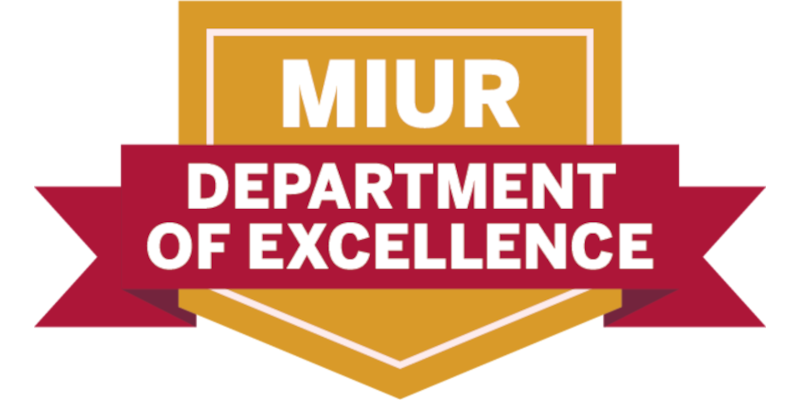Department of Excellence
Why are we ‘excellent’?
We are a Department of Excellence in Asian and North African studies, well known and recognised at both national and international level. We are the first-ranked Italian Department in research outputs in the following core areas: Antiquity, Philological-Literary and Historical-Artistic Sciences. We are thus leading players in making Ca' Foscari University of Venice one of the top 100 universities in the world for Modern Languages (QS World University Ranking by subject). We offer three-year and five-year degree programmes, including international and inter-university programmes, and master's and PhD programmes.


What we do
Based on the excellent results achieved, to a large extent, thanks to the funding obtained through the Departments of Excellence 2018-2022 grant scheme, the current project’s goal is to turn the DSAAM into an international reference point for advanced cultural and linguistic studies on Asia and Mediterranean Africa. In particular, the project aims to consolidate the Department’s human and material resources in order to strengthen interdisciplinarity, innovation and internationalisation in research and teaching on frontier topics related to the societies and cultures of Asia and Africa, their regional interconnections and their connections with Europe, with special regard to the challenges and opportunities inherent the current crisis of globalisation.
Areas of development
- Analysis of the transcultural dimension connecting historical, religious, philosophical, literary and artistic processes within and between Asia, the Arab and Islamic world and Europe, with a particular focus on the social impact of technological innovation and environmental issues
- Strengthening research on the religious dimensions of globalisation from a historical and contemporary perspective, with a specific focus on Buddhism
- Development of research on sustainability as well as social and cultural inclusion, from an areal perspective, also with reference to minority languages and cultures
Resources
We will invest:
12,6 million euro
We will hire:
1 full professor
7 tenure-track researchers
2 non-tenure-track researchers
2 members of administrative staff
Project milestones
2023
- Beginning of the recruitment procedures
- Further development of the MaP Centre's scientific activities
- Start-up of the LabASSA and inclusion-related research
- Development of infrastructure
2024
- Further recruitment
- Start-up of research activities on teaching innovation
- Establishment of the Master's degree curriculum on South East Asia
2025
- Conclusion of planned recruitment
- Planning of fund-raising activities
- Planning of actions for the future sustainability of the project
2026
- Interim monitoring of the project
- Beginning of phase two of the project
2027
- Final monitoring of project activities
The 'Marco Polo Research Centre - Centre for Global Europe-Asia Connections (MaP)', established under the previous Departments of Excellence grant scheme, is a national and international reference centre for the study of political, economic, artistic, cultural and religious interactions and connections between Europe, Asia and the Arab-Islamic world. The current project aims to consolidate and expand its research activities, strengthening its interdisciplinary vocation and innovation.
The main research topics we plan to develop are: technological innovation and its social impact; the global impact of regional phenomena such as nomadism, jihadism and its transcontinental networks between Asia and Africa; interdisciplinary integration in the study of palaeoclimate and ecosystems at risk of climate and cultural change; the regional and global circulation and impact of cultural products from Asia and Africa in terms of soft-power; the circulation and dissemination of modern and contemporary art practices from China, Japan and India; and the preservation of historical, artistic and cultural heritage found in Italy related to the regions of interest for the Department. On these topics, the Centre will promote collaborative and individual planning for innovative international and national research.
The aim of the project is also to strengthen research on the religious dimensions of globalisation from a historical and contemporary perspective, with a specific focus on Buddhism. Given the centrality of Buddhism in inter-Asian cultural dynamics at every level, it represents a fundamental field of study for understanding the complex interactions of culture, art, politics and economics in Asia in the perspective of global modernity.
Furthermore, with this project we aim at developing research on the issues of social and cultural sustainability and inclusion, mainly through the following activities:
- establishment of a trans-disciplinary Lab on Area Studies for Sustainability, specialising in the Asian and African contexts (Lab on Area Studies for Sustainability in Asia and Africa - LabASSA). Research and teaching activities will be oriented towards innovation: experimentation with co-creative research and teaching methods, collaborations with private enterprises and with the third sector, experimental development of ecolinguistic analysis models in an inter-areal perspective;
- strengthening research in the field of Asian minority languages and related literatures, seen as an expression of non-dominant identities in the framework of sustainability and inclusion. The project aims at enriching the already existing research expertise in the field of minority languages in Asia and Africa, with a focus on endangered languages.
In addition to meeting the growing demand for our courses at national and international level, the Department’s new teaching initiative will also respond to the increasing need of innovative methods for the interpretation of emerging scenarios, emphasising its interdisciplinary, international and highly specialised features through the following:
- development of South-East Asian Studies, with the establishment of a Master's degree curriculum on South-East Asian Studies within the Master's degree programme in Languages and Civilisations of Asia and Mediterranean Africa, and with the addition of a course in Indonesian/Malay language and literature in the Bachelor's degree programme in Languages, Cultures and Societies of Asia and Mediterranean Africa;
- Development of innovation in language teaching through the use of new technologies and applied experimentation responding to the current needs of language learning and research in the field of Translation Studies. Starting from the JALEA (Japanese e-learning System) project already underway, and in coordination with the other language teaching laboratories (DAR), the aim is to develop tools and applied IT resources for learning non-European languages for Italian-speaking users, supporting their use within traditional and experimental courses;
- Developing innovative research and teaching tools in classical and pre-modern sinological studies within the framework of digital humanities, in collaboration with the Venice Centre for Digital and Public Humanities;
- Development of the course offer in the field of Buddhist studies, with the introduction of highly specialised teachings, with the aim of creating a Master's degree programme in Buddhist Studies, with few equals in Europe, as well as strengthening the existing inter-university MA programme (with UNIPD) in Religious Studies;
- Development of the course offer in the field of the contemporary history of East and South-East Asia, on the one hand, and of Central Asia, on the other hand, in a regional perspective, in order to enrich the offer for the Master's Degree Programme in Mediterranean Languages, Economics and Institutions of Asia and Africa (LEISAAM) and to support the consolidation of studies on Eurasia and Africa in the new curricula established within the Bachelor's Degree programme in Languages, Cultures and Societies of Asia and Mediterranean Africa;
- Development of the PhD programme through the funding of 12 additional scholarships for research projects consistent with the topics of this project.
The infrastructure development plan has as the following objectives:
- increase the resources for research available to our staff in order to bring DSAAM up to the level of the major international centres, in particular through the access to databases, digital libraries, and paper resources related to the languages and areas of interest of the project;
- developing the infrastructure for innovative teaching and related research, with a new computer lab;
- developing e-infrastructure dedicated to research, in particular for the needs of the newly established LabASSA.
The project is managed, monitored and evaluated by a Steering Committee composed as follows:
- Dean of the Department (acting as project manager)
- Secretary of the Department
- Three members of the teaching staff
- An administrative staff member as project assistant
Last update: 21/03/2025
